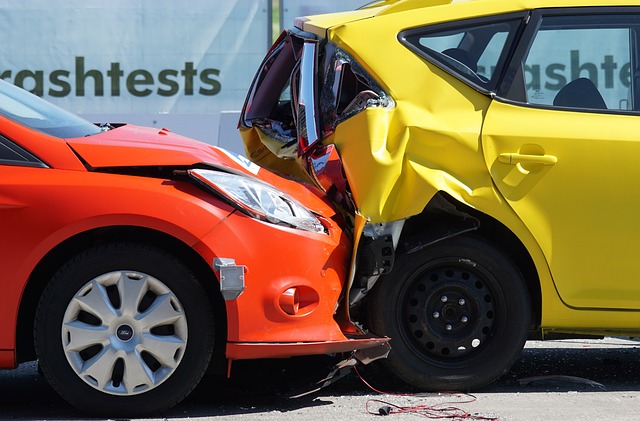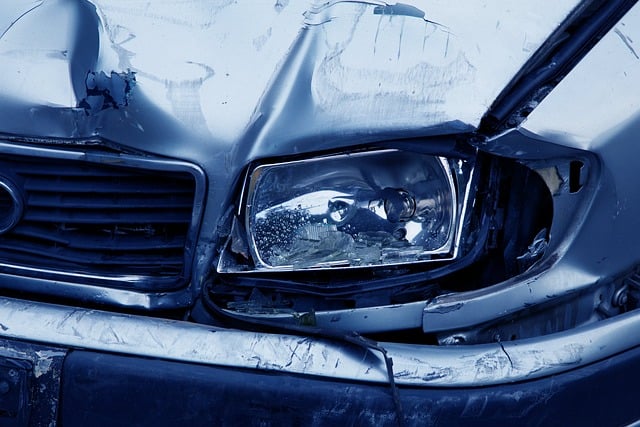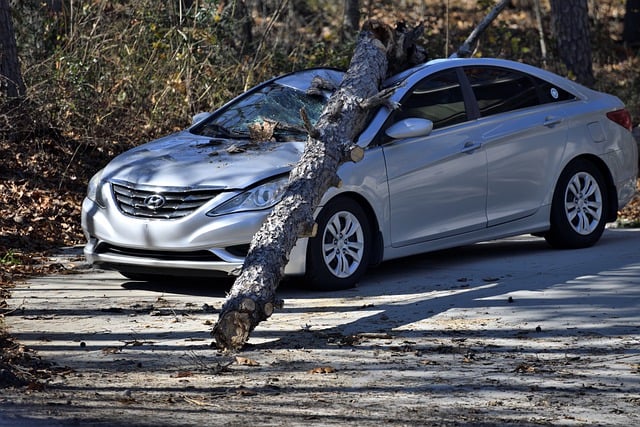- Understanding Collision Insurance: Beyond Legal Requirements
- The Benefits of Comprehensive Protection
- Rising Repair Costs in 2024: A Concern
- Assessing Your Vehicle's Age and Value
- Comparing Insurance Rates Effectively
- Securing the Right Coverage Plan
- Taking Control: When to Opt for Collision
Understanding Collision Insurance: Beyond Legal Requirements

Collision insurance goes beyond meeting legal requirements and offers additional protection for vehicle owners. While liability coverage protects you from financial loss if you cause an accident, collision insurance steps in when your car is damaged, regardless of fault. This includes instances like fender benders or more severe collisions, ensuring repairs or replacements are covered up to the policy limits.
Understanding what’s included in collision insurance is crucial for making informed decisions. By comparing policies and considering factors like deductibles and coverage limits, you can choose a plan that balances financial protection with cost-effectiveness, especially for older cars whose repair costs might not justify the premium.
The Benefits of Comprehensive Protection

Comprehensive protection goes beyond the legal minimum requirements and offers a safety net for unexpected events. In addition to covering accidents, this type of coverage protects against theft, natural disasters, vandalism, and other non-accident related incidents. This is especially beneficial for pricier vehicles or those with sentimental value, as it can save owners from a significant financial hit. Furthermore, comprehensive protection can help alleviate stress during unforeseen circumstances, ensuring repairs are covered without the added worry of high out-of-pocket costs.
Rising Repair Costs in 2024: A Concern

In 2024, the automotive industry faces a significant challenge: rising collision repair costs. This trend is driven by several factors, including advancements in safety standards that require more complex and expensive repairs, as well as an increased demand for specialized parts and labor. As vehicles age, they become more susceptible to damage, and the cost of fixing them can be substantial. For older cars, which may have outdated or less valuable components, these expenses can be particularly burdensome for owners. Without adequate insurance coverage, such as collision insurance, drivers could find themselves facing unexpected financial hardship in the event of an accident. Therefore, considering collision coverage becomes even more crucial in light of these rising repair costs.
Assessing Your Vehicle's Age and Value

When considering collision insurance, assessing your vehicle’s age and value is a crucial first step. While state laws vary on collision coverage requirements, understanding the worth of your car can help guide your decision-making process. Even older or less valuable vehicles may hold sentimental significance or have unique features making them costly to replace. If your car is relatively new or has high repair costs associated with its make and model, collision insurance could prove invaluable. Conversely, if your vehicle is older and its replacement value is low, you might weigh the cost of collision coverage against potential savings by opting for liability-only insurance. Each scenario demands a personalized approach to ensure adequate protection without overspending on unnecessary coverage.
Comparing Insurance Rates Effectively

When comparing insurance rates, it’s crucial to look beyond just the base price. Different policies have varying levels of coverage and exclusions, which can significantly impact your overall costs. Start by evaluating your risk profile—your driving history, age, and location play a role in determining premiums. Next, assess the type of coverage you need based on your vehicle. For older cars, collision insurance might be optional if the cost of repairs is likely to exceed the car’s value, as the deductible may outweigh the potential benefits. Conversely, comprehensive coverage could prove invaluable for newer vehicles with high replacement values. Utilize online tools and quotes from multiple insurers to gain a comprehensive view of available options, ensuring you make an informed decision tailored to your specific needs.
Securing the Right Coverage Plan

When considering your car insurance options, securing the right coverage plan is akin to choosing a reliable compass for your journey through life’s unpredictable roads. It involves a careful balance between ensuring legal compliance and safeguarding against financial uncertainties. For older cars, the decision between collision and liability insurance often arises, but it’s not as straightforward as it seems. While liability covers damages caused to others, collision insurance steps in when accidents are at fault—irrespective of who’s at fault.
Given the escalating costs of collision repairs in 2024, collision coverage becomes more than just a legal necessity; it’s a strategic investment. For vehicles that hold sentimental value or have outlived their warranty, collision insurance can be the safety net that prevents unexpected incidents from turning into financial disasters. It’s time to explore options, compare rates, and tailor your coverage to fit both your legal obligations and personal peace of mind.
Taking Control: When to Opt for Collision

When it comes to deciding whether to purchase collision insurance, taking control of your financial destiny is paramount. While liability insurance is a legal necessity, collision coverage offers an extra layer of protection, especially for older or higher-value vehicles. Despite the age of your car, accidents can lead to substantial repair bills, and collision insurance steps in to cover these costs.
Opting for collision insurance provides peace of mind, ensuring that unexpected incidents won’t leave you with a hefty repair bill. It’s particularly beneficial if you have a classic or vintage car, where replacement parts might be scarce and expensive. By choosing this coverage, you’re proactively managing potential financial risks associated with driving, regardless of your state’s legal requirements.



